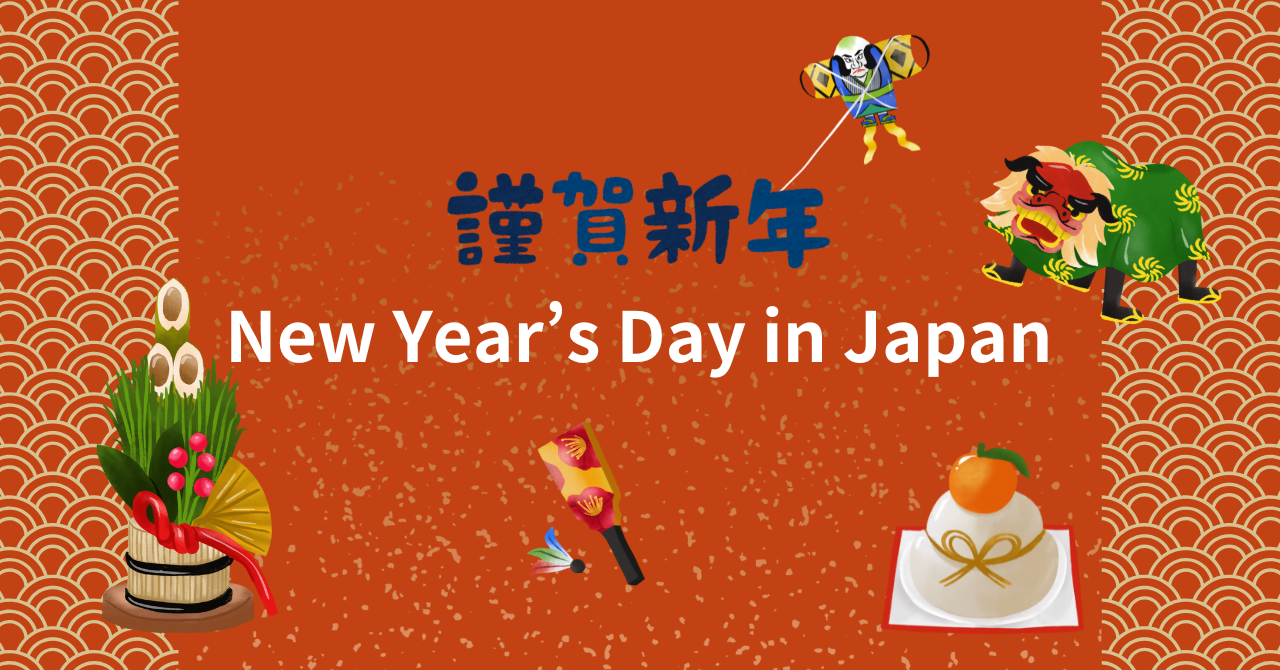Wishing you a very happy new year. If you are here in Japan now or planning to come to Japan oaround New Year’s Day, following information may be helpful.
What Japanese people do on New Year’s Day?
New Year’s Day (Shogatsu) is a very special day in Japan. Many people go back to their hometown to see their parents and/or grand parents. It is a time for family gathering.
We often visit Shinto Shrines or Buddhist temples on New year’s eve and/or New year’s day. Some famous Shrines and Temples (such as Meiji Shinto Shrine or Sensoji Temple) are extremly crowded. I often go to a Shinto Shrine to pray for the coming year.
Because all the schools and most of the companies are on holiday from end of December to early January, many people also travel (both domestically and abroad.) Stations and airports would be extremely busy around that time.
Transportation situation
Since many people travel around new year’s day, public transportation and roads are extremely crowded.
As for 2024-2025 new year holidays, Shinkansen bullet trains “Nozomi” (running between Tokyo-Kyoto-Osaka-Hakata) has no free seating available between Dec 27-Jan 5. (Please note that “Nozomi” is the fastest bullet train which stops only at major stations such as Tokyo, Shinagawa, Shin Yokohama, Nagoya, Kyoto, Shin Osaka etc. Bullet trains which stops at more stations (“Hikari”) and stops at all the stations (“kodama”) have reserved seats available during that time.)
Major highways are busy during New Year Holidays. You can check the congestion forecast here: Eastern Japan Highway congestion, Western Japan Highway
Shops/facilities opening
Shinto Shrines and Temples are generally open during the new year holiday. On New Year eve, many Shrines and Temples are open past midnight.
Shops, facilities and restaurants are open until December 31. Many of shops and restaurants are closed on Jan. 1.
For this year, banks are closed on Dec 31-Jan 5. (Banks are closed on Dec 31- Jan 3 plus Saturdays and Sundays. ) ATMs are open during new year holidays.
Shops and facilities that are open on Jan 1 are: Convenience Stores, Donki (Don Qui Jote), Major supermarkets (such as Aeon, Ito Yokado, Seiyu, Apita etc) and hotels/ryokans. Some shops/facilities may close earlier than usual, so please check beforehand.
Many shops starts on either Jan. 2 or 3. Major department stores (Takashimaya, Daimaru etc) will start from Jan. 3. Some shops often have “fuku bukuro” or lucky bag on first day after the new years. You don’t know what’s in the bag but is good value for the price. Sometimes, they will let you know what’s inside.
Special food for New Year’s Day
We often eat special “Osechi.” They are prepared in box and traditionally has special meaning to each food. It was traditionally prepared at home but now many people order them in advance. As for our family, since we go back to our parents’ house for the new years, we order “osechi” at a local department store and pick it up on New Year’s eve. We enjoy “osechi” on New year’s eve and New Year’s day.
Another thing we eat is “mochi.” As many of you know, mochi is made of rice by pounding rice (special rice suitable to make mochi) We eat them with soy sauce, soy sauce and sugar, kinako (soy powder) and sugar, anko (sweet bean paste) or in special soup called “ozoni” If you are staying in a Japanese style ryokan on new year holiday, you may have a chance to enjoy them.
For Overseas Travelers
I recommend that you visit some Shinto Shrines and/or Buddhist Temples on New Year Day so that you can see local people praying for the coming year. You may be surprised to see more people than usual. As for shopping and restaurants, fewer places are open, and in some cases, shorter time. If you are close to big shopping mall or Don Qui Jote, you can shop but otherwise other facilities are likely to be closed. I do not recommend moving between cities especially between Dec 28-Jan 5 for Japanese people also move at that time and extremely congestsed.



Comments